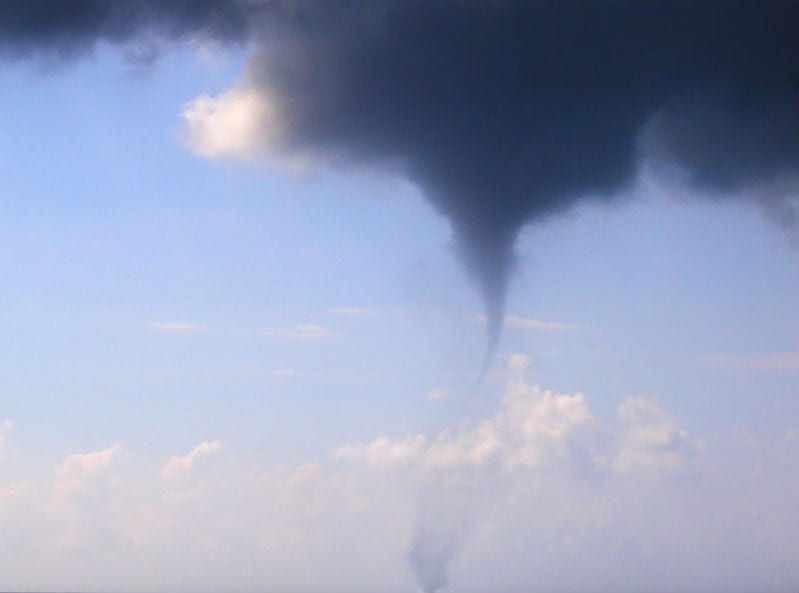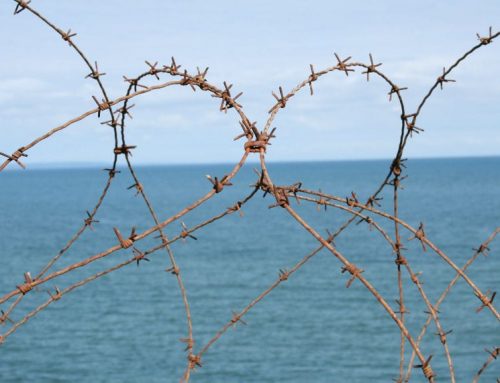The book says we have to be willing to go to any lengths. When we first get here, we all swear we’ll do anything it takes.
We believe it when we say it. We want to stop – we just want it to be easy. We’re happy for the help, but we’re sure we know best. Now that we’re not drinking, we can handle things ourselves. And then we repeat the same crap, over and over, seemingly shocked by the outcome.
We stood at the turning point, the book says – as if there will be only one. There will be hundreds, thousands of forks in the road that take us away from a drink or toward one. This allergy we have, this sober, unfamiliar state of living in reality makes us want to run back to what we know. No matter how awful it was.
That’s what the first two steps are all about.
Long before that first swallow, the mind gets drunk – justification and rationalization rule. It’s all right to buy myself stuff instead of pay child support. It’s all right to have an affair. It’s okay to shoplift. It’s safe to smoke pot, take Ambien, Suboxone, Vicodin, Xanax. It’s okay to lie, to manipulate, to blow people off, it’s all okay – everything’s fine.
But staying sober is all about our manner of living.
We all make mistakes and we can learn from them, but not if we refuse to admit we’re making them. We’re not fine. We’re not okay. Why is it so painfully hard to tell someone that?
When you sponsor people, you see it all the time. That initial desperation and determined conviction. The dawning hope, the growing excitement. Then comes the work, hard and sometimes painful. The challenge of keeping sobriety first (I have other things to do.) Of fighting the self-will that whispers we can manage our own lives (they don’t understand.) The budding arrogance of self-knowledge flooding us with false pride and fake power we refuse to surrender. I’ve got this, we tell ourselves. I don’t need anyone telling me what to do.
Once you’ve been here a while, you can see it coming – like a funnel cloud across a field, scooping up the storm chasers and pulling them back into the fray.
Some are first timers, others have been doing it for years, decades.
For a long time, I thought I could stop the storm. If I could say the right thing, use the right words, I could make them take the right fork in the road. That I could somehow convince these girls, these women I care so much about, of the danger I see coming. It’s so easy to forget that no human power can relieve our alcoholism.
It doesn’t have to be this way. Tell someone what you’re doing – someone who’s stayed sober. Tell them before you go, tell them what hurts, makes you mad, scared, resentful. Tell them how lonely you are, how lost you feel. Then do what they suggest. Not halfheartedly, not just the easy parts, follow the whole path. Act your way into a new way of thinking.
You can do it. I promise. We’ll be right here with you.
This isn’t my program or yours, it’s the program, our program, as presented in the book of Alcoholics Anonymous. The map is written there, real live directions on how to completely recover from a hopeless state of mind and body.
Truth is, meeting makers don’t always make it. But we rarely see people fail who thoroughly follow our path. If you want we have, surely it makes sense to do what we did? Half measures won’t get you half – they get you drunk. I could never possibly have done more for my sponsor than she did for me. I cringe every time I hear that said in meetings.
In the past few years, I have seen far too many women get sucked back into the storm. I did my best to warn them, to explain how they can keep themselves safe, but honestly it didn’t help. They don’t believe it, they think I’m mean or maybe somewhere deep inside, they’ve already decided they don’t care. I don’t know.
It sounds so simple in the book, to let them go in the hopes that this next out-and-about brings the willingness they need to stay. So I have to step back and let them move on. It doesn’t feel simple. Just sad.
[ruasubscriber]







Leave A Comment
You must be logged in to post a comment.